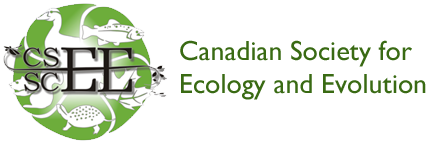Graduate student positions in aquatic greenhouse gases and water quality
We are seeking graduate students (MSc or PhD) to conduct research in limnology at the University of Regina. The positions will be held in theFinlay lab and the Institute for Environmental Change and Society (IECS) at the University of Regina. IECS is a highly collaborative environment with research expertise in environmental sciences that houses state-of-the-art equipment for a range of water quality analyses, and hosts the 30+ year long-term ecological research program (QU-LTER).
Projects include:
Aquatic methane dynamics: Aquatic ecosystems are known to contribute significantly to global methane emissions, but elevated salinity in lakes, ponds and wetlands of the northern Great Plains is often associated with reduced methane emissions. Research will examine how varying salinity concentrations and composition affect diffusive and ebullitive fluxes of methane. This work builds on previous research on greenhouse gases in southern Saskatchewan, Canada (Webb et al. 2019. Biogeosciences 16: 4211; Soued et al. 2024. Nature Communications 15:717)
Algal toxin production and dynamics: Cyanobacterial harmful algal blooms (cHABs) are increasing in prevalence worldwide, causing extensive health and financial risks. Microcystin (MC) is particularly problematic in aquatic ecosystems in the northern Great Plains, raising concerns for human, livestock, and ecosystem health. Research on this topic will explore MC dynamics in small, constructed reservoirs, wetland ponds, and natural lakes to identify controls of cHAB proliferation and degradation. This research will use existing and novel data collection in the QU-LTER and surrounding aquatic ecosystems.
cHAB impacts on food web dynamics: Toxins produced by cHABs are known to affect livestock and human health, but the impact on the direct grazing community – the zooplankton – is unclear. This collaborative project will study the zooplankton and phytoplankton communities in the Frank Lake wetland complex in southern Alberta, Canada, and the QU-LTER to identify the impact of cHABs on diet selectivity of grazers. This work will complement previous and ongoing research on these study systems (e.g., Bogard et al. 2023. Science of the Total Environment 884: 163584; Haig and Leavitt 2019 L&O Bulletin 28:3).
The successful graduate students will have experience in aquatic sampling and knowledge of aquatic biogeochemistry and water quality. The candidate should be comfortable with travel in rural environments and working on the water. The successful applicant(s) will be expected to publish their research in leading journals and present at conferences. Funding is min. $19,500 (CAD) per year for the graduate position which can be supplemented with Teaching Assistantships and scholarships. Costs of travel for field work and conferences will be covered.
Interested individuals should provide unofficial transcripts, CVs, a letter outlining relevant background and interest in the research and team at the U of R, and contact information for at least two references to Kerri Finlay (kerri.finlay@uregina.ca). We welcome applications from people of all backgrounds – if you are interested but don’t meet all the qualifications, please reach out for more information! Review of application will begin Mar 1, 2025 and will continue until positions are filled.
